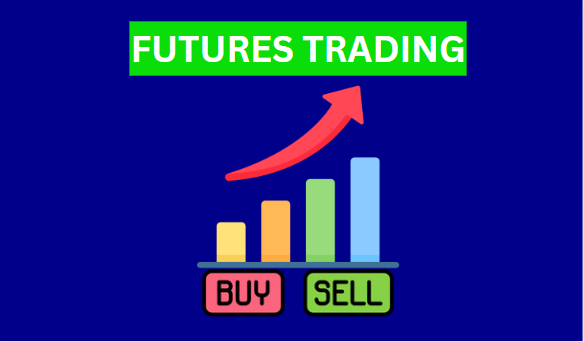In recent years, the Indian share market has undergone significant changes due to technological advancements and evolving market dynamics. futures trading have emerged as a game-changer, allowing investors to speculate on asset prices in the future. Join us in this blog as we explore the concept of futures trading, discussing its pros and cons.
“Trading doesn’t just reveal your character; it also builds it if you stay in the game long enough.” ― Yvan Byeajee
List of contents
- What is futures trading?
- Futures trading opportunities in various markets
- Types of futures traders
- Advantages of futures trading
- Disadvantages of futures trading
- Conclusion
Read also: What is options trading?
What is futures trading?
To understand this, it’s important to know about derivative trading. Derivative trading involves buying and selling financial contracts called derivatives, which get their value from another asset. Derivatives can be based on various assets like stocks, commodities, currencies, silver, gold, and more. Through these contracts, investors can speculate on the price movement of the underlying asset without owning it directly. The price of a derivative follows the price of the underlying asset, making derivative trading a way to participate in the market without owning the actual asset.
Futures trading involve buying or selling a type of financial contract called a futures contract. In a futures contract, a buyer agrees to purchase a derivative at a specific future date and price. It’s a way to trade assets at a predetermined price in the future. Futures contracts are traded on exchanges, and their prices change over time based on the price of the underlying asset.
Futures trading opportunities in various markets
There are many types of futures contracts available for trading, including:
- Stock futures:- Ex. Reliance Jun Fut, Tata Motors Aug Fut, etc.
- Commodity futures:- Silvermic Jan Fut, Gold Aug Fut, Crudeoil March Fut, etc.
- Index futures:- Nifty Jun Fut, Banknifty Dec Fut, etc.
- Currency futures:- USDINR Jun Fut, EURINR Jun Fut, GBPINR Aug Fut, JPYINR Aug Fut, etc.
Types of futures traders
There are two major participants in futures trading: – hedgers and speculators.
- Hedgers: Hedgers use futures contracts to mitigate the risk associated with price fluctuations in the underlying asset and wish to protect their businesses from the effects of fluctuating prices. They are typically individuals or businesses involved in the production, purchase, or sale of the underlying asset and use futures contracts to protect against potential losses.
- Speculators: These traders aim to profit from price movements in futures contracts by speculating on the direction of the market. They take positions based on their analysis and predictions of future price trends.
Advantages of futures trading
- Short selling: Traders can sell futures contracts before owning them, taking advantage of downward price movements to generate profits. By capitalising on this opportunity, traders can potentially earn profits from declining prices in this.
- Risk Management: Futures can be used to hedge the price movement of the underlying asset, reducing potential losses.
- High Leverage: This allows investors to control a larger position with a smaller initial investment, known as margin. This leverage can amplify potential returns if the market moves in their favour.
- Liquidity: Futures markets are highly liquid, meaning there is usually a high volume of buyers and sellers. This liquidity ensures that traders can easily enter and exit positions.
- Market Accessibility: It offers access to a wide range of markets, including stocks, commodities, currencies, and indices. A trader can take advantage of various market opportunities without the need for direct ownership of the underlying assets.
Disadvantages of futures trading
- Leverage risk: Margin can act as a double-edged sword in futures trading, amplifying both gains and losses. While it allows traders to magnify their profits, it also exposes them to heightened risks, potentially leading to significant losses.
- Daily adjustment: Sufficient capital availability is a prerequisite for the daily mark-to-market adjustment, necessitating traders to maintain their positions. So, it’s not possible to maintain a futures contract with less capital.
To open zerodha account :- Click here
Read also: Best dividend paying stocks in India
Conclusion
Futures trading offer a wide range of opportunities for investors and traders alike. With its potential for high returns and ability to hedge against market volatility, it has become a popular financial instrument. However, it’s crucial to understand the inherent risks involved and the importance of proper risk management.
Happy trading!
I hope you enjoyed reading this. Please share it with other and do comment!
Read also: Forex trading in India?

